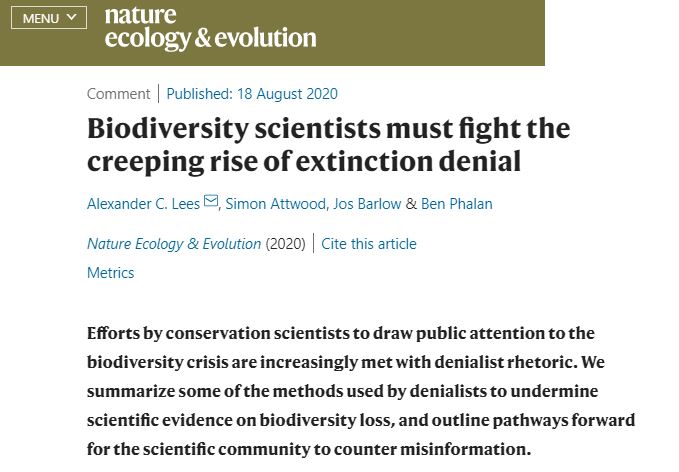
Twitter cut the rest of the conservation vs animal rights thread off - which you can find below 👇
https://twitter.com/Alexander_Lees/status/1423266028985978880
Finally, conservation is not about improving individual animal welfare (well unless that individual is one of a handful left alive), it is about stopping populations and species going extinct – by preserving and enhancing biological diversity planet.botany.uwc.ac.za/nisl/Conservat…
Conservation is not for example shipping habituated elephants from the UK to another country that neither wants nor need them. it was an abuse of the term to market it as such to the media and confuse the public into opening limited purses under false pretences.
Fundamentally we can’t ‘protect all wildlife’, because it clashes with measures to stop local and global extinctions. Killing unfortunately is sometimes conservation. I wish it were not so.
So, stop, look, listen, the real world where conservation biologists operate is full of ugly decisions and moral residue projectcoyote.org/wp-content/upl… which we have to own and deal with.
If you are struggling with this apparent paradox then spare a thought for the people who think we should kill wild lions to stop them killing their prey qz.com/497675/to-trul… which is where overthinking death in nature gets you.
Maybe it is best to see humans as we are, another animal, part of nature, but a superpredator and ecosystem engineer which has decimated biodiversity, but with the capacity to put things right by remaking ecosystems, species assemblages and trophic processes.
It may seem counter-intuitive but opposing well-regulated trophy hunting, invasive species control and evidence-based attempts to redress trophic imbalances, along with attacks on conservation-orientated zoos are effectively pro-extinction stances. Work with us and not against us
• • •
Missing some Tweet in this thread? You can try to
force a refresh








